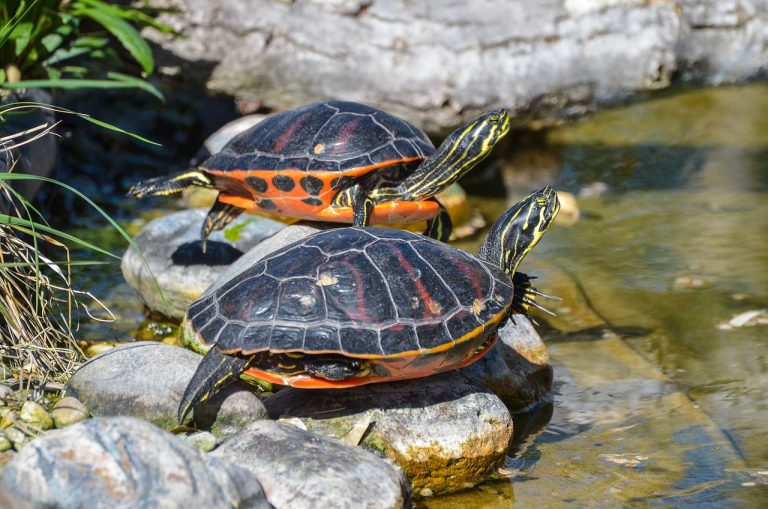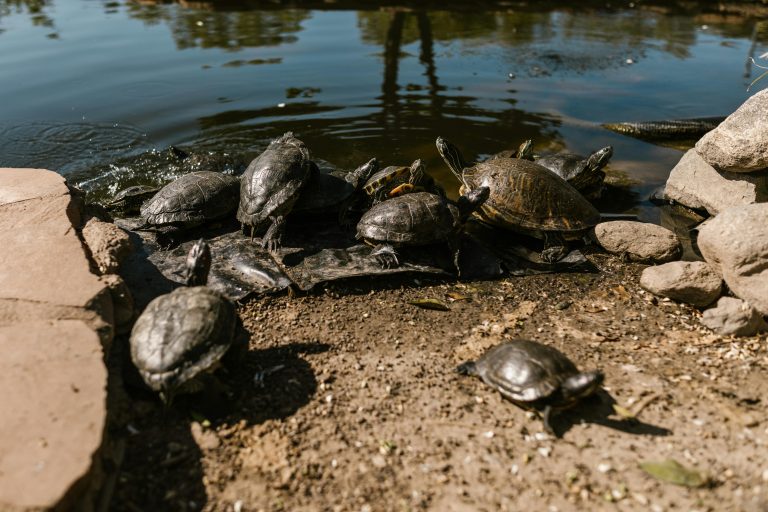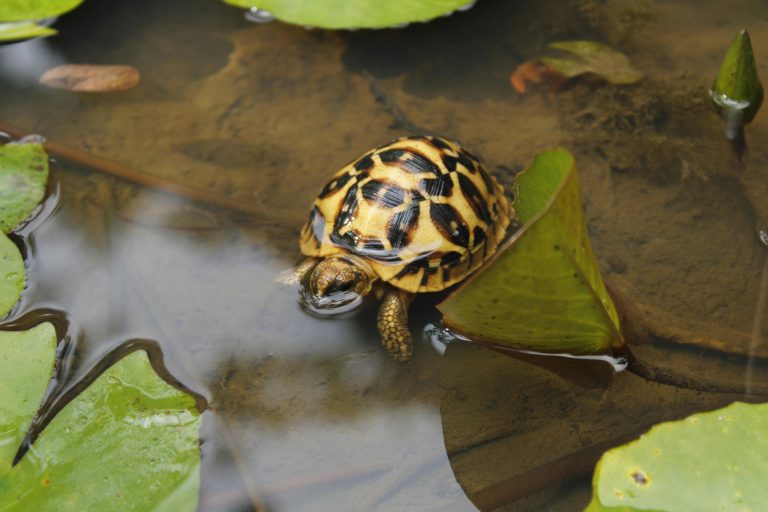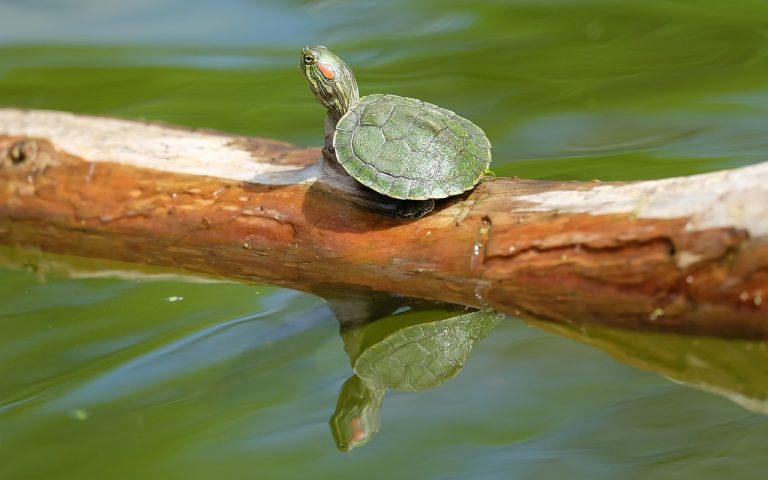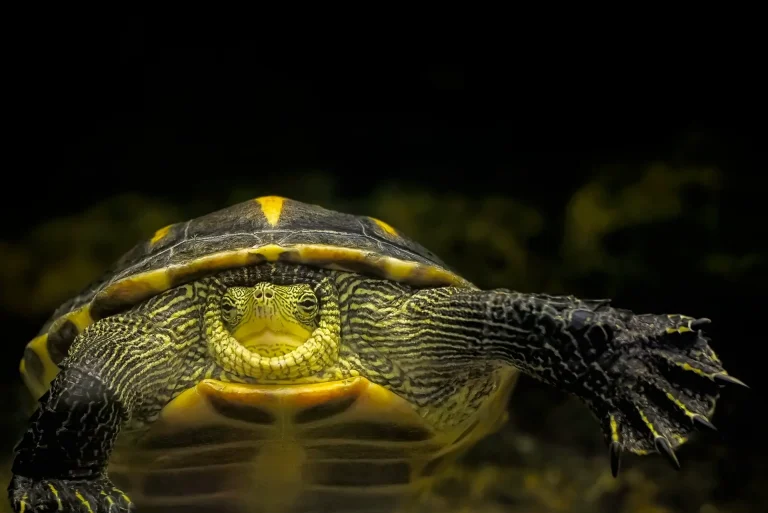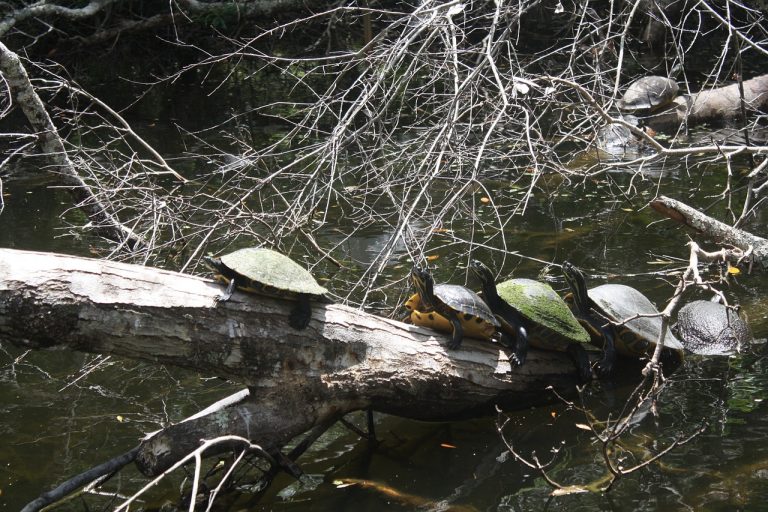Are Softshell Turtles Rare?
Prior to purchasing any turtle species, thorough research is essential. Why? Because the more you learn about a species, the better equipped you are to provide proper care. Moreover, if a turtle is endangered, you can take additional steps to aid in its conservation. The question here is whether softshell turtles are rare or not.
Yes, some subspecies of the softshell turtles are extremely rare. Such as:
- The Yangtze softshell turtle/ red river giant softshell turtle
- The Cantor’s giant softshell turtle
- The black softshell turtle
I am sure you are thinking about why these species are at the edge of extinction or how to save them. If so, then give this article a quick read.
Conservation Status Of Different Softshell Turtle Subspecies
Most of the subspecies of the softshell turtles are either endangered or rare. Remember one thing. One species that is engendered in one state or region may not be rare in other countries.
Here is a chart that indicates the conservation status of the subspecies and some additional information:
| Softshell turtle subspecies | Conservation status | Additional information |
|---|---|---|
| Spiny softshell turtle | Endangered | The population of spiny softshell turtles is stable throughout the USA. But the subspecies has been declared endangered in Canada. The native habitats of the spiny softshell are most parts of the USA and south Mexico. |
| Florida softshell turtles | Least concern | There are a considerable number of Florida softshell turtles available. You may find this species in southern Georgia, and California. |
| Smooth softshell turtle | Least concern | Even though this subspecies is out of danger, in some regions, they are facing wildlife threats. The natural habitats of the smooth softshell turtles are Louisiana, Minnesota, Dakotas, Pennsylvania, etc. |
| Chinese softshell turtle | Vulnerable | The natural habitat of the Chinese softshell turtle is China. |
| Asiatic softshell turtles | Vulnerable | You will find these subspecies throughout Asia. |
| Malayan softshell turtle | Least concern | There are a considerable number of Malayan softshell turtles available. This species loves to stay in freshwater. |
| Yangtze softshell turtle | Critically endangered/rare | The Yangtze softshell turtle is the rarest turtle species in the world. This species’ natural habitat is the red river of China, the lower Yangtze river, and Vietnam. |
| Asian giant softshell turtle | Endangered | The Asian giant softshell turtle is found in Bangladesh, Philippino, and most of the Asian countries. |
| Indian softshell turtle | Vulnerable | You can find this species in the Ganga, Indus, and Mahanandi river. |
| Indian narrow-headed softshell turtle | Endangered | Like the Indian softshell turtle, this species is a native Indian. |
| Black softshell turtle | Almost extinct/Rate | The black softshell turtles are almost extinct in the wild. Its native habitat is Bangladesh and India. |
| African softshell turtle | Not extinct | The African softshell turtles are available in the African countries. |
| Euphrates softshell turtle | Endangered | The habitats of these subspecies are in Iraq, Iran, Turkey, Syria, etc. |
Why Are The Softshell Turtles Endangered?
If you think deeply, you will find out why the softshell turtles are becoming rare. From my point of view, there are 3 main reasons behind it. Such as:
- Habitat loss
- Pollution
- Illegal pet trade
Habitat Loss
As the global population continues to grow, wild softshell turtles are facing habitat loss. Picture this: you move to a new area near a forest, but within a few years, the landscape is transformed into a bustling hub of shops, residences, and more. Consequently, the softshell turtles in the vicinity are forced to vacate their habitat permanently.
The softshell turtle population has decreased because of this habitat loss, and the species is getting rare.
Pollution
Softshell turtles are primarily freshwater inhabitants, spending much of their time submerged in rivers’ depths, rarely surfacing. Consequently, the quality of water is paramount for their survival.
Unfortunately, over the years, water pollution has escalated significantly. As a result, the lakes and rivers where softshell turtles reside have become increasingly toxic. Countless turtles have perished due to contaminated water, exacerbating the species’ endangered status. This grave issue underscores the urgent need for conservation efforts.
Illegal Pet Trade
Softshell turtles are both rare and remarkable creatures, attracting the fascination of many potential pet owners. Unfortunately, due to high demand, unscrupulous individuals in the black market exploit the situation.
When purchasing a softshell turtle from a store, buyers typically expect to acquire a captive-bred specimen. However, because breeding these turtles can be costly and time-consuming, some shops resort to selling wild-caught individuals. This practice significantly affects the wild population of softshell turtles, leading to the decline of certain subspecies, making them increasingly difficult to encounter.
Besides these 3 reasons, accidents, climate change, and diseases are some other factors that affect the softshell turtles.
Why Is This Species So Important To Save?
Whether it’s a softshell turtle or a red-eared slider, each species contributes to the delicate balance of our ecosystem. They serve as vital components of biodiversity, acting as indicators of environmental health. So, what would the disappearance of softshell turtles signify?
Clearly, it would signal an ecosystem in distress. Furthermore, this endangerment would precipitate the loss of other species within the ecosystem. You might wonder, why do we need a balanced ecosystem?
The truth is, humans alone cannot maintain environmental purity; we rely on the entirety of wild species. Hopefully, this sheds light on the importance of conserving softshell turtles and preserving the integrity of our ecosystems.
Can You Save The Endangered Softshell Turtles?
For certain softshell turtle subspecies like the Yangtze, it may seem too late to intervene. Had action been taken a decade or two earlier, there might have been a glimmer of hope. However, there’s still much we can do for other vulnerable and endangered softshell turtles.
As turtle enthusiasts or owners, here are some steps we can take:
- Refrain from capturing wild turtles to keep as pets.
- Purchase turtles only from reputable, legal pet stores. By boycotting illegal vendors, we can gradually dismantle the black market.
- Before acquiring any turtle species, conduct research to ensure suitability as a pet.
- Endeavor to avoid activities that contribute to water pollution.
- If softshell turtles inhabit your property or surroundings, refrain from disturbing them. If they appear vulnerable, promptly contact the relevant authorities.
- If you encounter an ill or injured turtle, promptly notify a rescue team and cooperate with their efforts.
Is There Any Law To Save The Rare Softshell Turtles?
Indeed, there are regulations in place. In the USA, shipping Florida softshell turtles, spiny softshell turtles, and smooth softshell turtles requires authorization from higher authorities. This measure allows the administration to monitor the trade and population of softshell turtles. Additionally, efforts are underway to crackdown on illegal pet markets. However, it’s essential to note that capturing wild turtles may also be unlawful, subject to enforcement action by the authorities.
Before You Go…
The majority of softshell turtle subspecies face the grim realities of rarity, vulnerability, and endangerment. However, the burden of saving these species cannot rest solely on the shoulders of authorities. As conscientious citizens and admirers of turtles, it’s crucial for us all to acknowledge this reality. We must collectively step forward to create a more hospitable environment for softshell turtles.
